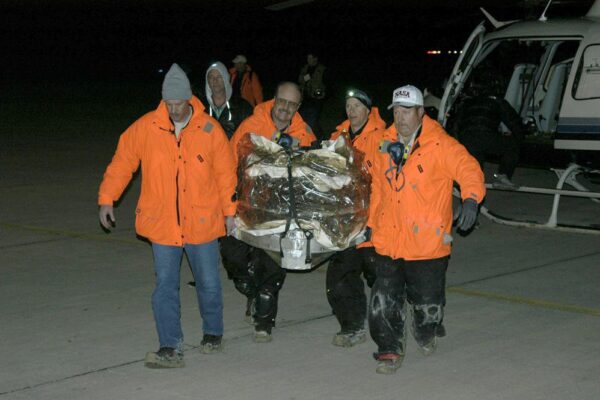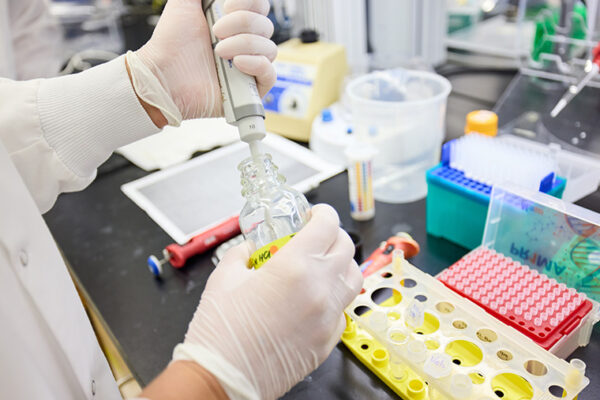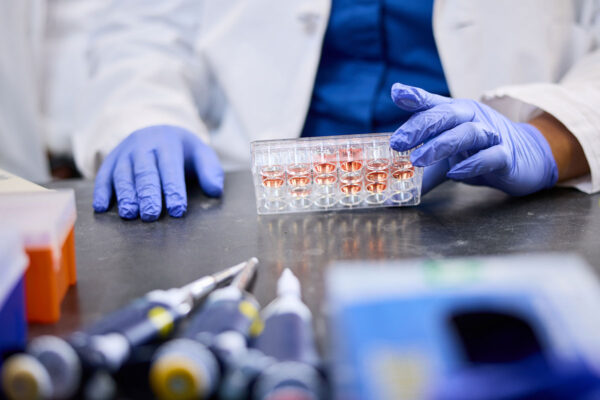VC bust? Time to return to fundamentals in 2024
After years of record investments and outsized returns fueled by ultralow interest rates, 3,200 U.S. private venture-backed companies — mostly tech startups — went out of business last year. Doug Villhard at Olin Business School said the bust will cause the industry to reassess what is really important.
Samples from a Wild comet reveal a surprising past
Eighteen years after NASA’s Stardust mission returned to Earth with the first samples from a known comet, the true nature of that icy object is coming into focus, according to physicist Ryan Ogliore in Arts & Sciences.
Washington University and Deerfield Management launch VeritaScience to drive drug discovery
Washington University in St. Louis and Deerfield Management, a health-care investment firm, announced the launch of VeritaScience, a new private R&D collaboration designed to advance the discovery, clinical development and commercialization of promising therapeutic and diagnostic candidates with potential to benefit human health.
Sam Fox School spring Public Lecture Series begins Jan. 26
Artists Judith Barry and Kahlil Robert Irving, architects Fernanda Canales and Michael Maltzan, landscape architect Julie Bargmann and philosopher Timothy Morton are among the internationally renowned creative professionals who will discuss their work for the Sam Fox School of Design & Visual Arts’ spring Public Lecture Series.
Four factors that drove 2023’s extreme heat
2023 was the hottest year in recorded history. Michael Wysession, a professor of earth, environmental and planetary sciences in Arts & Sciences, explains four factors that drove the year’s extreme heat and climate disasters — and what this means for the future.
Old research, new readers
Some Source stories from years past continue to attract new readers. Here, we check in with WashU researchers in linguistics, psychology, engineering and other disciplines to learn more about their work and how the research has progressed.
Awardees announced for Needleman innovation, commercialization program
Three WashU researchers developing promising therapeutics for cancer and heart disease are the inaugural awardees of the Needleman Program for Innovation and Commercialization. The next round of project proposals is now open.
Greenwood Cemetery association to be honored with Rosa Parks award
Members of the Greenwood Cemetery Preservation Association will receive the annual Rosa L. Parks Award during the university’s Martin Luther King Jr. Commemoration at 2 p.m. Monday, Jan. 15, at Graham Chapel.
‘Kahlil Robert Irving: Archaeology of the Present’ opens Feb. 23 at Kemper Art Museum
The Mildred Lane Kemper Art Museum at Washington University in St. Louis will present “Kahlil Robert Irving: Archaeology of the Present” Feb. 23 through July 29. An internationally acclaimed artist raised and based in St. Louis, Irving frequently examines issues and topics ranging from memory, race and digital media to Black life and the politics of industrial manufacturing.
Black Rep launches 47th season
The Black Rep will launch its 47th season with “Hold On.” The world premiere drama, by British playwright Paul Webb, is based on his original screenplay for the Oscar-nominated film “Selma.”
View More Stories









